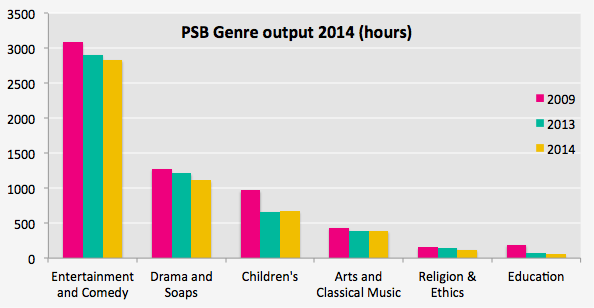A pot of £60 million to boost production in under-served genres of Public Service Broadcasting on TV and Radio sounds like good news but the DCMS consultation document gives cause for concern to the Nations and Regions.
Nowhere in the document is there evidence of an adequate understanding of the position of PSB output in Wales.
Noting Ofcom’s observation of a decline in production across certain genres such as religious programmes, children’s content and music and arts in the White Paper A BBC for the Future, the UK government committed to establishing a pilot for a new contestable fund for such genres.
The consultation closed on February 14th but the nine questions it posed require continued interrogation and debate, particularly in light of the BBC’s financial settlement for English language tv in Wales. Insufficient attention has been paid to what the Contestable Funding pilot might mean for Wales. Funding is funding but appropriate access to, criteria and platforms for, and administration of funding matter.
For instance, the terms of the first question are immediately contentious:
1) (i) Should the fund be broadly or narrowly focused?
(ii) On which genres and audiences should the fund be focused?
a) Arts & classical music b) Children’s c) Religion and ethics d) Education e) Factual
f) Nations & Regions g) Diversity (i.e. content for/about protected groups) h) Other.
To place Nations and Regions (which indicates audiences to be served) as an option alongside Genres (a means of serving audiences) is to immediately confuse the issue.
There is no recognition in the document that Wales, for instance, has been particularly poorly served across all the genres mentioned. It has zero in (b), (c) and (d) on television and in radio faces particular challenges across two languages.
One is tempted therefore, from a Wales point of view, to answer 1 (i) by saying, make it a narrower focus and give us enough money to bring us to a level with the best provided-for parts of the UK. Is that what the document is implicitly inviting – a use of a contestable fund to fill up the shortfall in Nations and Regions service? Nothing in the document’s tone or approach suggests that is so.
The use of a graphic Fig. 1 (sourced from Ofcom data) to show Output per PSB genre is in danger of giving the reader a false impression regarding Wales, as noted in a submission from the Centre for the Study of Media in Small Nations:
“Figure 1 in this consultation document risks giving a misleading impression of genre output by solely providing UK-wide figures. It also fails to represent the impact of substantial funding cuts to the sole Welsh-language television service, S4C.
“An appreciation of the specific under-provision of PSB in each of the UK nations is necessary if contestable funding is genuinely going to lead to perceptible improvements across the UK and adequately represent the devolved realities of media policy and provision in the nations (see McElroy et al, 2017).”
Dr Caitriona Noonan and Amy Genders in their submission (which concentrates on arts programming) point to the lack of clarity around both accessibility to the fund and how the pilot’s success will be measured.
They also ask what will motivate commercial public service broadcasters “to engage with the fund and its content given that many of them (especially ITV and Channel 5) have largely withdrawn from their PSB commitment especially in relation to arts programming.”
They recommend “monitoring of spend and distribution” and also raise the issue of how the funding will be maintained and whether, in the case of arts programming, non-broadcast organizations such as galleries, museums or artists will be able to apply. This point can be extended to other fields such as education.
Analysis and response to government initiatives, at UK and Wales levels, on media and communications issues requires vigilance and collaboration across genres, media and institutions if the interests of Wales are to be properly advanced.

